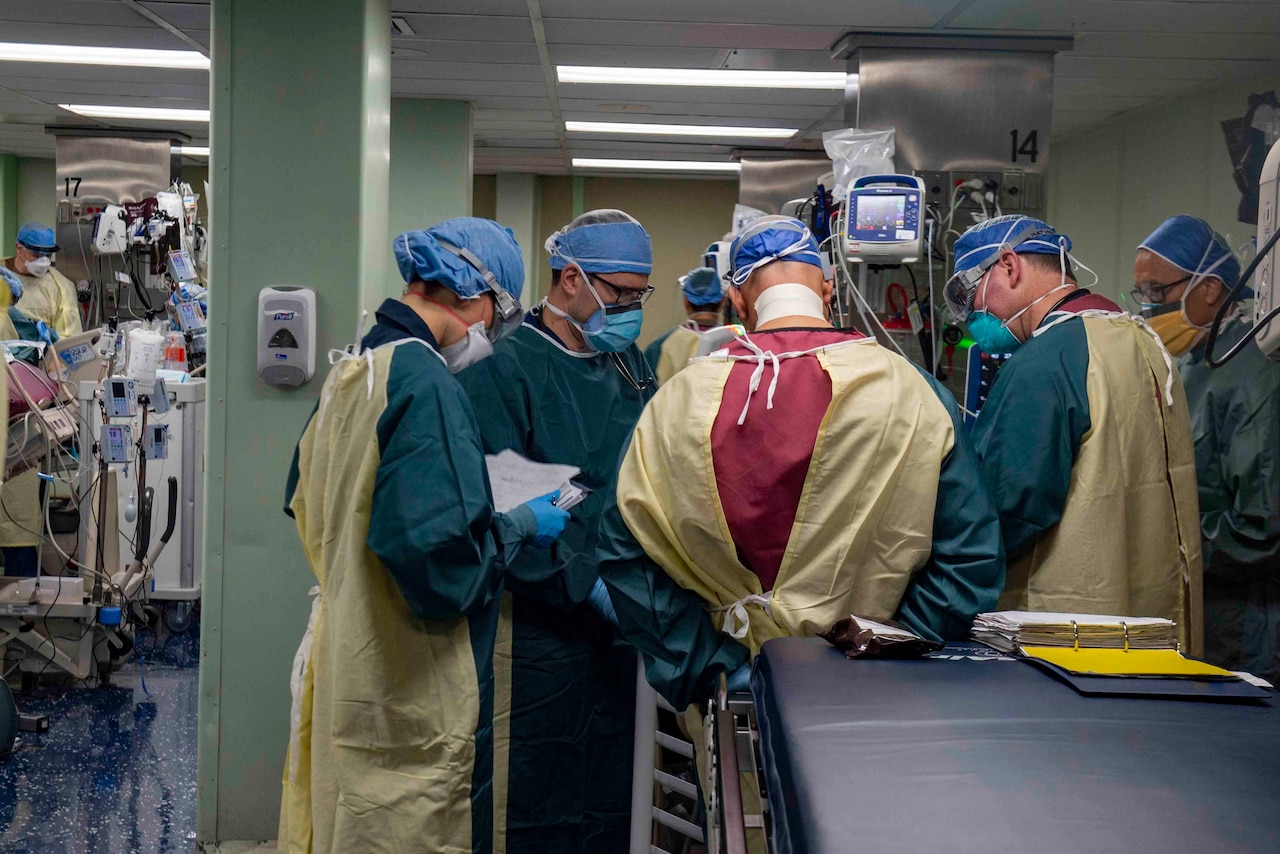April 24, 2020 | BY NAVY LT. KRISTI ESCO
A hallmark of the nation's commitment to its military is the
promise of providing for service members and their families while they are
sacrificing so much to protect the American people and their way of life.
Today, the military continues to act as the bulwark of our security while
battling a simultaneous silent threat to their own health and wellness.
Effectively mitigating the spread of COVID-19 requires new
customs such as working remotely, restricting movement and social distancing.
These are challenges all Americans face, but the added difficulties and arduous
nature of military service adds to the complexities for service members. These
adjustments have unintentionally created questions about some pay and benefits
for military members.
The Defense Department has heard these challenges and the
many questions about how the men and women of the military will be compensated
during this crisis. Over the last several weeks, the Office of the Assistant
Secretary of Defense for Manpower and Reserve Affairs has issued military
personnel guidance and further supplemental guidance addressing special
policies and procedures implemented to ensure continuing financial security for
our members and their families, and guidance on use of leave.
The unprecedented measures to mitigate the spread of
COVID-19 require us to change some of our normal business rules and flex our
policies where that is warranted. Specifically, this military personnel
guidance addresses concerns such as how members can continue receiving Special
and Incentive Pays if their duties are severely restricted, Basic Allowance for
Housing when a change of duty station is interrupted, how to compensate members
for the hardships associated with being ordered into Restriction of Movement,
and how members can continue receiving Servicemembers' Group Life Insurance
(SGLI) coverage if their pay is interrupted.
It also discusses how reservists and National Guard members
can perform training periods, called drills, in the midst of travel
restrictions, among many other topics.
Many highly-skilled members receive special or incentive
pays for their incredible and challenging jobs, such as divers and airborne
troops. While under orders to restrict movements, the department will continue
paying these incentives, even if these troops are unable to meet their monthly
minimum dives or jumps, or any of the requirements of some of the other special
and incentive pays.
DOD officials recognize that it is not feasible to perform
these duties during this time of crisis, and so, these policy exceptions will
allow members to receive their expected compensation.
While many reservists and National Guard members are being
called up to support the response to COVID-19, many are also being asked to
change their regular routines. Social distancing is impractical during typical
training and drills. To combat this new reality, commanders are empowered to
exercise more flexibility and may use broader discretion in employment
practices, such as telework and work from alternate locations. The secretary of
defense has given commanders the authorities needed to take the necessary
precautions, while also ensuring service members are trained and ready to
defend the nation.
More than ever before, flexibility is paramount for
reservists and National Guard members. However, even with more flexibility,
there will still be reservists and National Guard members who will not be able
to drill, even remotely, due to unforeseen circumstances. In these cases,
members may have questions about whether their SGLI insurance coverage will
continue even if they are not drilling and getting paid.
It is important to note that members will not lose their
life insurance coverage if they were unable to drill or perform training due to
COVID-19. Coverage will continue, and those missed premiums will only be
deducted when the member returns to a pay status.
Doctors, nurses and medics from the Florida National Guard
joined Florida International University at the Miami Beach Convention Center to
conduct training in preparation to staff the center in the event it is needed
in response to COVID-19.
Another significant issue is how to ensure members do not
lose their accrued leave if they are unable to use it between now and the end
of the year. Normally, service members can carry over only 60 days of leave
from one fiscal year to the next, but this could be a problem for those who are
engaged in the fight against COVID-19 or are unable to go on leave due to the
travel restrictions. To protect them from losing their well-earned leave, the
undersecretary of defense for personnel and readiness signed a special
memorandum authorizing what is called special leave accrual. This authority
will let service members carry over leave up to 120 days.
Everyone has been affected by COVID-19. For every service
member, their first point of contact should be their chain of command to find
out more information concerning pay and personnel policies. Departmentwide
guidance on the response to COVID-19, including military personnel guidance,
can be found on the department's coronavirus Spotlight page. This same
information, as well as additional financial counseling resources can also be
found on Military OneSource.
To effectively minimize risk and remain unified as
challenges arise, the Office of the Assistant Secretary of Defense for Manpower
and Reserve Affairs will continue to work closely with the rest of the Defense
Department, other federal agencies, and state and local governments to provide
updated information. The department remains committed to responding to this
pandemic on the frontlines of that battle while prioritizing protecting troops,
DOD civilians and their families.
(Navy Lt. Kristi Esco is assigned to the Office of the
Undersecretary of Defense for Personnel and Readiness.)









No comments:
Post a Comment